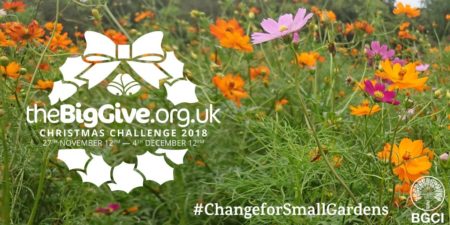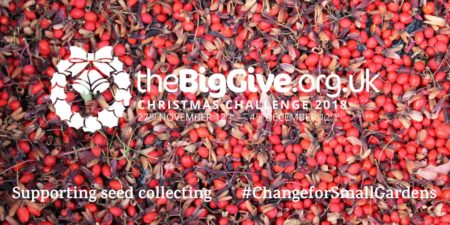Happy to help our friends at Botanic Gardens Conservation International with their fundraising for small gardens.

Botanic gardens globally conserve more than 40% of threatened plant species in their living collections and seed banks. Many small botanic gardens, however, have limited resources to carry out plant conservation actions, particularly in the most biodiverse regions of the world. For example, Puerto Rico has 19 critically endangered tree species, each with fewer than 50 individuals remaining in the wild. Only four of these species are safely conserved in botanic gardens.
Botanic Gardens Conservation International (BGCI) is a membership organisation representing a network of 500 botanic gardens in more than 100 countries, including the largest and most influential gardens in the sector. BGCI is the largest plant conservation network in the world, and aims to collect, conserve, characterise and cultivate samples from all of the world’s plants as an insurance policy against their extinction in the wild and as a source of plant material for human innovation, adaptation and resilience.
BGCI’s mission is to mobilise botanic gardens and engage partners in securing plant diversity for the well-being of people and the planet.
BGCI’s Global Botanic Garden Fund helps support small botanic gardens carrying out vital plant conservation action. Each grant will be awarded to enable the garden to better contribute to the conservation of the world’s plant diversity. Already many botanic gardens have benefited from these small conservation grants from BGCI, from seed collecting expeditions targeting threatened plant species in India to providing essential plant collecting equipment to gardens across the Caribbean.
Get Involved
Help BGCI reach more botanic gardens and save more plants. The Big Give Christmas Challenge runs for a week from #GivingTuesday on the 27th November until Tuesday 4th December and all week donations will be doubled until we reach our target of £20,000!

How to Donate
From midday #GivingTuesday 27th November to midday 4th December go to this website to get your donation doubled.

